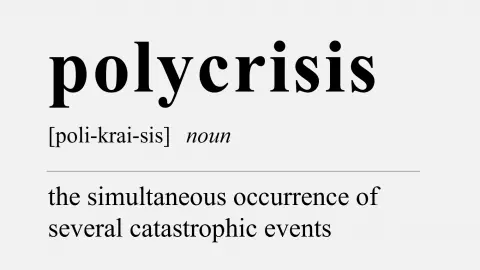China’s domestic economy is thriving, but exports remain vulnerable
Strong internal tourism during the Golden Week holiday in early May indicates that the domestic economy has rebounded. But exports remain weak and could worsen further. We are revising our GDP forecasts
Retail sales during Golden Week indicate the domestic economy has recovered
We are seeing clear signs that China's domestic economy has recovered.
Retail sales and catering increased by 18.9% year-on-year during the Golden Week holiday (around the first week of May). In particular, catering jumped by 57.9%YoY. According to the app Meituan, dining sales at restaurants during the first three days of the holiday jumped by 92% from the 2019 pre-Covid level.
In terms of internal tourism, there were 274 million trips made during this year's Golden Week, a 40% increase from the 195 million trips made during the same period in 2019. Revenue from internal tourism was CNY148 billion, a 25% increase from the 2019 figure of CNY117 billion. But we need to consider that there was an extra day of holiday during this year's Golden Week compared to 2019. After taking this into account, the number of internal trips rose by 101% from 2019.
Outbound tourism, on the other hand, was not as good. There were only 1.253 million trips per day during this year's holiday, which was 59.2% of the 2019 total. One reason for this is that there has been a long wait to renew passports. Another is that Chinese tourists' wealth was hit during Covid and middle-income spenders are less willing to take long-haul flights and spend lavishly overseas, although the wealthy are not affected.
With little consumption leakage to outbound tourism, the domestic recovery could be more obvious during the summer holidays.
Golden Week in 2023 vs 2019

Exports are not promising
The global economy is weakening and we expect the US economy to slow further. This is making life more difficult for Chinese exporters. As we are not optimistic about the prospects for the global economy, manufacturing will likely remain weak for the rest of the year. This is going to affect wage growth in manufacturing, and as a result, overall wage growth in China's labour market. This will eventually hit the domestic economy by slowing consumption.
Fiscal stimulus could help break the negative feedback loop
We expect fiscal stimulus will be the main tool used to try to stop this negative feedback loop. The policy objective will be to support the manufacturing industry to keep labour demand stable in the sector. One possible policy tool would be to continue subsidising electric vehicle consumption, which will then increase the production of electric vehicles. Another would be to push infrastructure investment faster.
GDP forecast revision
With a better-than-expected GDP release for the first quarter, a surprisingly good Golden Week in May, and our expectation that retail sales and fiscal stimulus could keep up this momentum during the summer holidays, we are revising our GDP growth forecast up to 5.7% in 2023 from 5.0% previously. But the challenging global economic environment will affect China's economy more in 2024. As such, we are revising down the forecast for 2024 to 4.7% from 5.3%.
Download
Download article
12 May 2023
ING Monthly: We’re in a polycrisis – and this is what it means This bundle contains 16 articles"THINK Outside" is a collection of specially commissioned content from third-party sources, such as economic think-tanks and academic institutions, that ING deems reliable and from non-research departments within ING. ING Bank N.V. ("ING") uses these sources to expand the range of opinions you can find on the THINK website. Some of these sources are not the property of or managed by ING, and therefore ING cannot always guarantee the correctness, completeness, actuality and quality of such sources, nor the availability at any given time of the data and information provided, and ING cannot accept any liability in this respect, insofar as this is permissible pursuant to the applicable laws and regulations.
This publication does not necessarily reflect the ING house view. This publication has been prepared solely for information purposes without regard to any particular user's investment objectives, financial situation, or means. The information in the publication is not an investment recommendation and it is not investment, legal or tax advice or an offer or solicitation to purchase or sell any financial instrument. Reasonable care has been taken to ensure that this publication is not untrue or misleading when published, but ING does not represent that it is accurate or complete. ING does not accept any liability for any direct, indirect or consequential loss arising from any use of this publication. Unless otherwise stated, any views, forecasts, or estimates are solely those of the author(s), as of the date of the publication and are subject to change without notice.
The distribution of this publication may be restricted by law or regulation in different jurisdictions and persons into whose possession this publication comes should inform themselves about, and observe, such restrictions.
Copyright and database rights protection exists in this report and it may not be reproduced, distributed or published by any person for any purpose without the prior express consent of ING. All rights are reserved.
ING Bank N.V. is authorised by the Dutch Central Bank and supervised by the European Central Bank (ECB), the Dutch Central Bank (DNB) and the Dutch Authority for the Financial Markets (AFM). ING Bank N.V. is incorporated in the Netherlands (Trade Register no. 33031431 Amsterdam).
